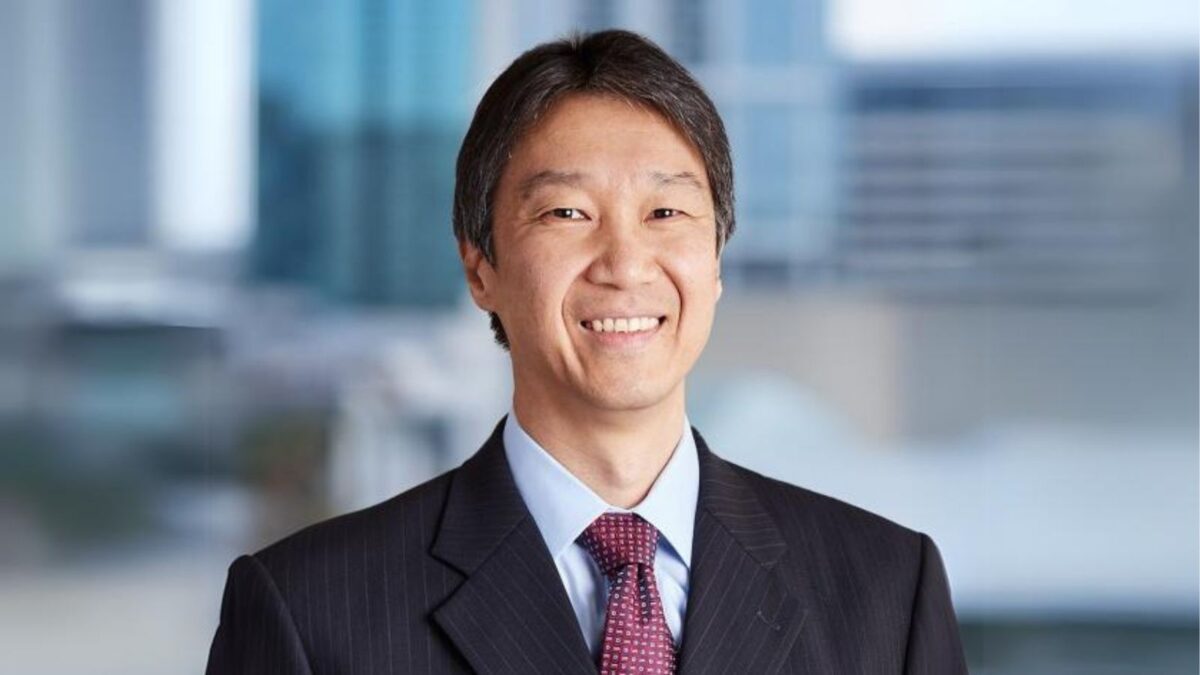Japan’s equity market is surging. But is it sustainable?
It’s hard to believe. Japan’s economy and markets have been in the doldrums for so long, deflation seems the natural order. Over the past three decades, its GDP annual growth has averaged a miniscule 0.9 per cent while China has averaged 12.3 per cent. Not surprisingly, Japan’s economy shrunk from 14 per cent to four per cent of global GDP while China surged from two per cent to 18 per cent.
It’s the same sorry story with the equity market. When the key index, the Nikkei 225, hit a record 39,098 yen on 22 February 2024 (it’s currently trading at 38,386 yen), it was the first time it had passed its previous record set back in 1989. Over that same period the US market rose 14 times, Germany 10 times and China six times.
So, why are some analysts increasingly bullish on the Japanese market? According to Japanese asset manager Sparx Group it can be traced back to the economic reforms of former Prime Minister Shinzo Abe, who had a three-pronged approach to reform – monetary easing by the Bank of Japan, fiscal stimulus and structural change.
“It’s taken time for these structural reforms to take hold, but now we’re really seeing the impact of ‘Abenomics’ on the economy and market,” portfolio manager Masakazu Takeda tells ISN. “Before these changes – they included cutting red tape and corporate taxes, as well as expanding greater participation in the workplace in a country with a rapidly ageing workforce – Japan did not have what I would call a capitalist mindset as understood in the West.
“There was no focus on shareholders, on a return on capital, on capital efficiency, as practised in the West. It was a shame because Japan gets many things right, a good work ethic, for example, but we were never good at monetising it. That took time to change, but now that it’s hit a critical mass, a lot of change is happening very quickly.”
Sparx CEO and founder Shuhei Abe is even more upbeat. In a recent paper titled The dawn of Japan: Historical turning point for the world, he argues that “the market is starting to recognise that we are entering a period like Japan’s post 1970s oil crisis, post-war recovery (1950s) and the Meiji period (1870s) when entrepreneurialism and the economy flourished.
“Historically, in the face of a social crisis, Japan’s recovery has been sparked by its entrepreneurs. This time will not be an exception and I believe a new entrepreneurial spirit and energy will re-emerge in Japan.”
This momentum for reform is being picked up by overseas analysts, with Goldman Sachs, in a comment on the Tokyo Stock Exchange’s company governance reforms, saying “they have been a game changer for the Japanese equities market.
“The stock exchange has incentivised listed companies to boost valuations and earnings, and companies could potentially be delisted if they’re unable to show they’re using their capital efficiently. Investors see the unwinding of Japanese companies’ cross-shareholdings — shares that firms own in their business partners to maintain those relationships — as an indication of improved governance.”
Economic and corporate reform is one thing, market confidence another. So, when Warren Buffett bought into five Japanese trading houses – Itochu, Marubeni, Mitsubishi, Mitsui and Sumitomo – in 2020 to help celebrate his 90th birthday and compared them to Berkshire itself because of their diversified portfolios with long-term investments and a focus on value and cash flow, overseas investors sat up and took notice.
They took even more notice when he increased his stakes in April last year, telling CNBC that the trading houses “were selling at what I thought were ridiculous prices, particularly the price compared with the interest rates prevailing at that time”. In the following five trading days, overseas investors bought Japanese stocks to the tune of $US7.83 billion ($A11.7 billion).
The 64,000-yen question, of course, for Australian superannuation funds is whether the sun will keep rising after this latest market surge. Just as importantly, have they missed the rally?
Takeda is quietly optimistic. “Is it another false dawn? That’s the question. This time we think it’s different on the back of the structural changes. If you look at the US in the 1970s, P/E ratios were about 14 times. In Japan, P/E ratios were then 30 to 50 times. Now it’s the complete reverse, so, yes, we still think this market is still attractive.
“It’s story that’s getting interest from Australian investors, but right now that’s about as good as it gets – a lot of interest. It’s not just whether it’s sustainable, but whether they’ve missed out. We think not, that there’s more to come.”
Some Australian investors have already bought the story. The Future Fund, for example, is overweight Japan, while others have at least got this remarkable country of 125 million finally back on their investment radar. A critically important commercial relationship that began with the signing of the 1957 Commerce Agreement just 12 years after the end of hostilities in the Pacific between these two countries could be getting a new lease of life.











